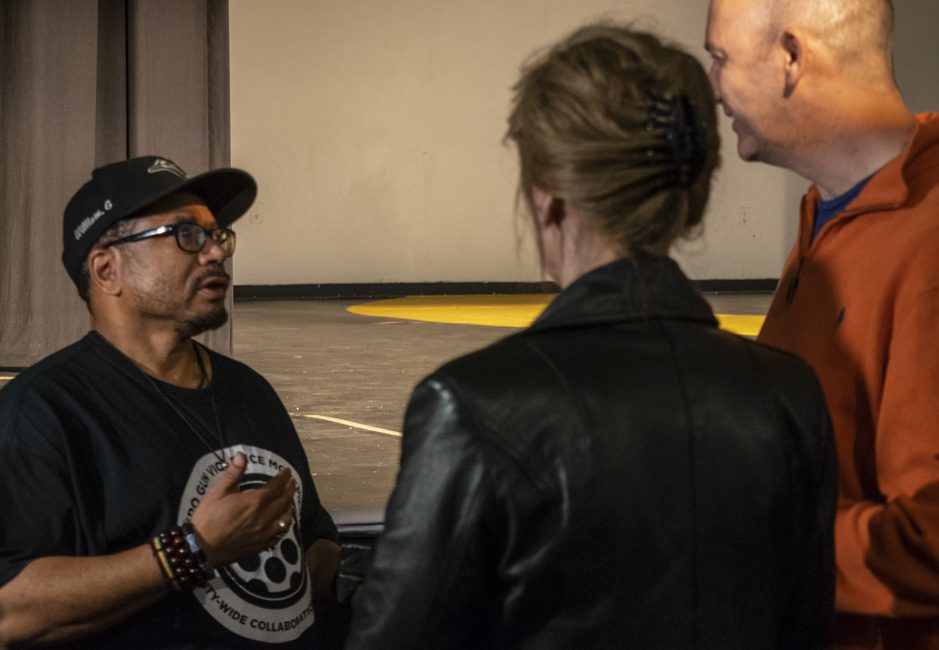Louis March says to fix the gun violence problem the government needs to bring the communities involved into the struggle to save lives.
“The first word in community safety is community. It’s not police, it’s not politics, it’s the community,” the founder of the Zero Gun Violence Movement told a town hall meeting at St. Patrick Catholic Secondary School on Sept. 23.
“In a solution to the elimination of gun violence in Toronto or across Canada, the community has to be an integral part or a stakeholder in what’s being discussed,” March said.
The meeting was organized by Beaches-East York MP Nathaniel Erskine-Smith and Toronto-Danforth MP Julie Dabrusin and Nathaniel Erskine-Smith.
March said kids as young as 14 are getting their hands on guns, something they could not do in 2005, the year known in Toronto as “the year of the gun.”
He added that if he were Bill Blair, recently appointed Minister of Border Security and Organized Crime Reduction, he would call all the key stakeholders to the table, including the leaders of the three levels of government, academics, mental health practitioners and family planning professionals.
“Bring them all to the table and say 2018 was a bad year,” March said. “What changed in your field and what changes do we need to bring to solve it?”
Blair, who also took part as a panelist at the meeting, said he believes this city is one of the safer communities in the country.
“Compared to other large urban centres across Canada, Toronto remains one of the safest and more livable cities anywhere, but that should never mean that we be complacent about violence that takes place,” Blair said.
With Blair’s appointment he is tasked with examining measures the government could take, he said. This includes a handgun ban or assault rifle regulation and doing so in a way that respects the rights of responsible firearm owners.
He said he has traveled across the country to understand what other jurisdictions do to face the issue.
“Canada is a vast country and we have a responsibility in our federal laws to make sure we bring forward laws that work to keep the entire country safe,” Blair said.
Panelist Scot Wortley, associate professor of criminology at the University of Toronto, said the issue has many levels that need to be addressed.
“We can start at the most immediate level and look at psychological factors, pro-crime attitudes, opposition to law enforcement and mental health issues,” Wortley said. “We can look at the next level down being family problems including fatherlessness, generational poverty and generational trauma.”
Wortley said one of the discouraging aspects of his findings was a correlation between social alienation, injustice in society and justifications for criminal activity.
“Many of the young men that are most involved in this perceive that Canada is not a fair country to them, that they don’t have the same opportunities, the same life chances as people living in this neighbourhood,” he said.
“They perceive that there’s discrimination based on race and class and they don’t have what might be called a stake in conformity.”
March said, “Our thing is how do we fix this? How do we give them a reason to live and not to die?
“These kids don’t deserve to die. These families do not deserve to suffer. These communities do not deserve to live in fear and despair.”

